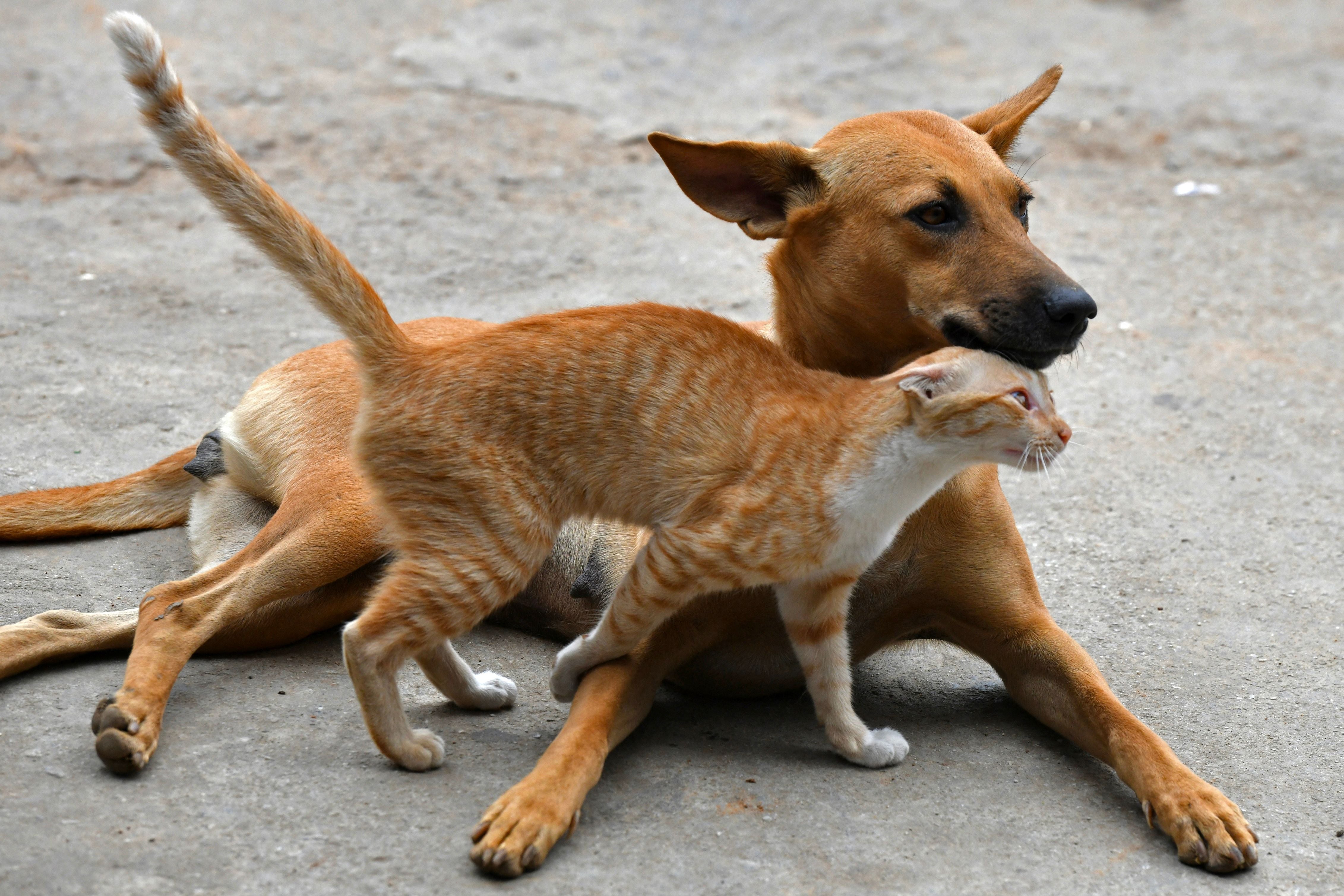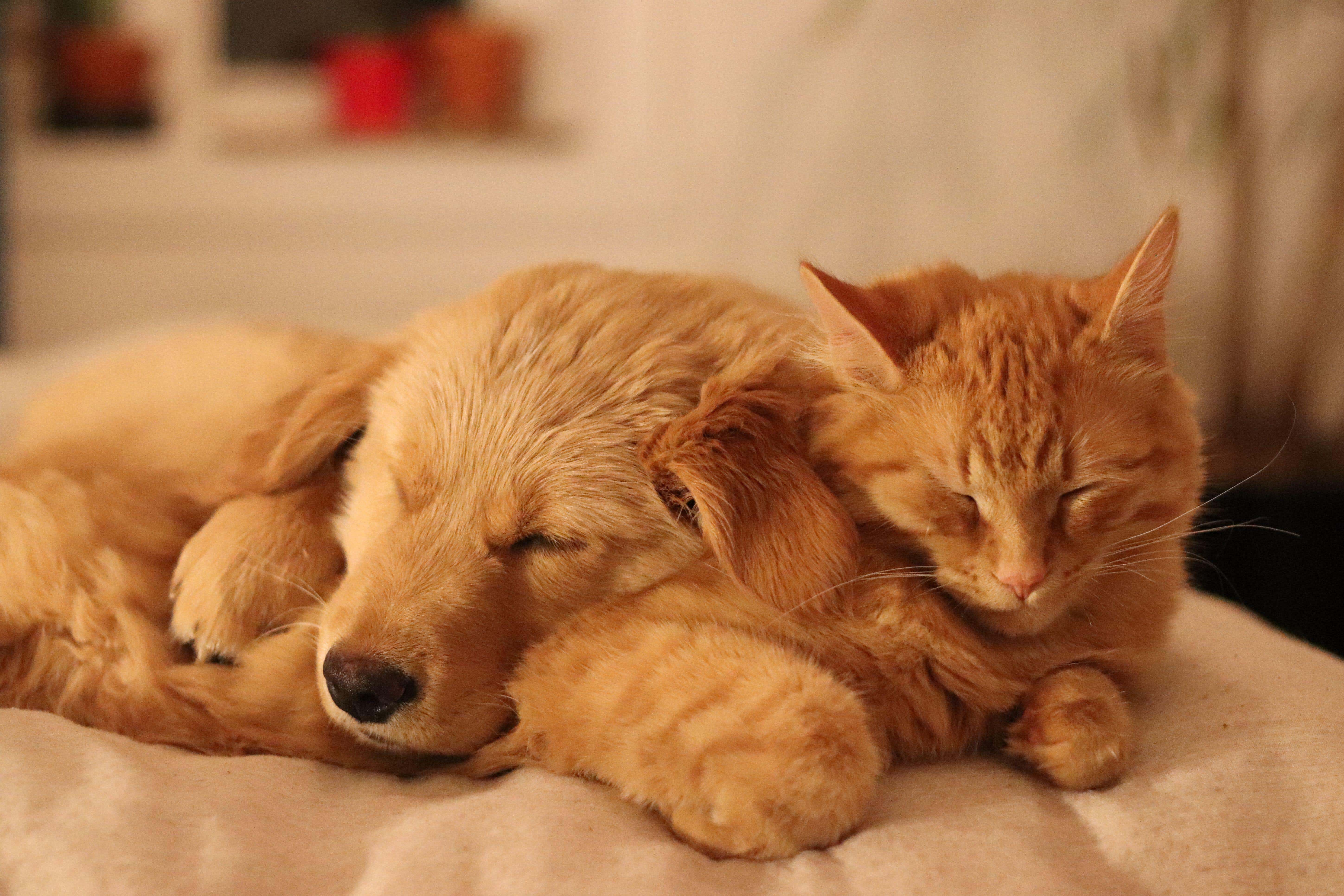How to make your dog get along with your cat, according to experts

Your support helps us to tell the story
From reproductive rights to climate change to Big Tech, The Independent is on the ground when the story is developing. Whether it's investigating the financials of Elon Musk's pro-Trump PAC or producing our latest documentary, 'The A Word', which shines a light on the American women fighting for reproductive rights, we know how important it is to parse out the facts from the messaging.
At such a critical moment in US history, we need reporters on the ground. Your donation allows us to keep sending journalists to speak to both sides of the story.
The Independent is trusted by Americans across the entire political spectrum. And unlike many other quality news outlets, we choose not to lock Americans out of our reporting and analysis with paywalls. We believe quality journalism should be available to everyone, paid for by those who can afford it.
Your support makes all the difference.The trick to stopping your pets from fighting each other has been revealed.
People planning on taking a new puppy home to their cat should think about allowing them to get used to each other gradually rather than immediately mixing the two, the findings suggest.
The key to stopping your pets from fighting like cats and dogs may lie in how you first introduce them to each other, research suggests.
As part of its Generation Pup research, Dogs Trust is looking at the interaction between dogs and cats.
The new study found that factors such as the speed of introduction and a puppy’s age can influence their behaviour towards household cats.
The research found that around one fifth (20.1%) of pet owners introduce their new puppy to their existing cats immediately, and some 18.9% do it in less than two hours.
However, gradual introductions between puppies and cats significantly increased the likelihood of them getting along.
According to the findings, puppies introduced to cats over more than one day – particularly those younger than 12 weeks – are calmer and more friendly, which can help form a more harmonious relationship.

Dr Rachel Casey is a vet, researcher and veterinary behaviour specialist, and director of strategy and transformation at Dogs Trust.
She told the PA news agency: “The advice is that it’s done really gradually.
“In an ideal world, what you’d want to do is to have the cat in a situation where it can escape, it can get out of the way, so maybe somewhere high that the cat can go so it doesn’t feel threatened by the puppy.
“And what you really need to teach the puppy is to be calm in the presence of the cat.
“So you want to have them introduced at a time and a place where everybody is sitting down, it’s really quiet, and probably have the puppy on a lead and distract it with something, so you’re doing that introduction gradually.
She added that the vast majority of dogs showed “undesirable” behaviour when first introduced to a cat, including being aggressive, chasing the feline, or playing with the cat when it did not want to play.
Under 10% of the puppies who were introduced to cats were calm and stayed relaxed.
Dr Casey said: “The factors that were really important in whether the puppies showed the kind of behaviour you’d like – the sort of calm, relaxed behaviour – were the gradual introduction, but also if they were younger.
“So if the puppies were younger than 12 weeks of age, they were more likely to be calm and relaxed.”
The Generation Pup study is the largest of its kind in the UK, with more than 9,500 puppies already enrolled, including some 4,500 puppies where there is a dog/cat interaction.
It aims to explore how factors such as genetics, early experiences and the environment shape dogs’ behaviour as they grow, by asking owners to fill out questionnaires throughout the lives of their dogs.
The latest findings will be presented at New Scientist Live 2024, which is taking place at the ExCeL London this weekend.